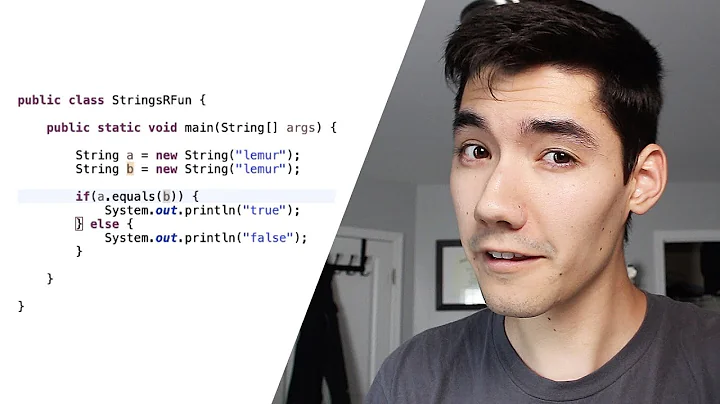Compare int and Object in Java
Solution 1
What's at play here is autoboxing.
When you use a primitive literal when a reference is expected, the primitive is autoboxed to the wrapper type (in this case from int to Integer).
Your code is the equivalent of this:
Object obj = Integer.valueOf(3);
if ( obj.equals(Integer.valueOf(3)) ) {
//...
I'll leave it to you to decide whether that's true or not.
Solution 2
This is also interesting:
Object t = 3;
t.equals( 3 ); // true
3 == t; // true
But
Object h = 128;
h.equals( 128 ); // true
128 == h; // false
.equals will work, becase the value will be compared. == Will work, using the references, but only from -128 to 127, because the autoboxing mechanism, uses an internal pool to hold "most commonly used" references.
Strange enough: o == 3 will fail at compile time.
Solution 3
Yes.
Here is what's happening behind the scenes.
Object obj = Integer.valueOf(3);
obj.equals(Integer.valueOf(3));
So, of course they are equal.
Solution 4
The first statement will set obj to be a automatically boxed Integer (the same as Integer.valueOf(3))
Hence the second statement will return true.
Related videos on Youtube
user
Updated on June 04, 2022Comments
-
user almost 2 years
I have the following code:
Object obj = 3; //obj.equals(3); // so is this true?Does
objequal to 3?-
 Mark Peters over 13 yearsWhat happened when you tried it?
Mark Peters over 13 yearsWhat happened when you tried it? -
user over 13 years
obj.equals(3)was true, but I'd like to know if it was only "luck" or it really equals to 3 -
Tony Ennis over 13 yearsYou're thinking along the right lines. Depending on luck sucks.
-
-
medloh over 8 yearso? Where is that declared?






